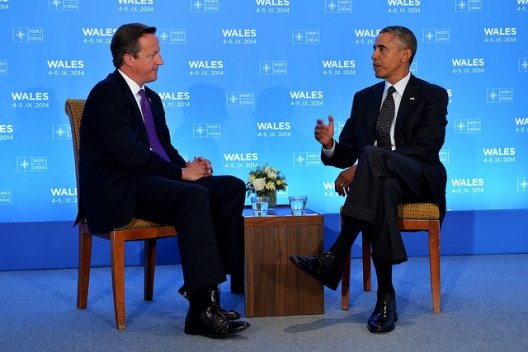 Preliminary reports from fourteen countries examined for fiscal year 2015 suggest that only one (Estonia) will spend 2% of GDP on defence. Six out of the fourteen states examined, namely Latvia, Lithuania, Norway, Poland, the Netherlands and Romania will increase their military expenditure this year but not meet the 2% target. In Poland’s case, a further commitment has been made to increase defence spending to 2% of GDP in 2016 from a figure just below that in 2015. Six countries will cut defence expenditure in 2015. These include the UK, Germany, Canada, Italy, Hungary and Bulgaria. France is on course for a flat defence budget in 2015 compared to 2014….
Preliminary reports from fourteen countries examined for fiscal year 2015 suggest that only one (Estonia) will spend 2% of GDP on defence. Six out of the fourteen states examined, namely Latvia, Lithuania, Norway, Poland, the Netherlands and Romania will increase their military expenditure this year but not meet the 2% target. In Poland’s case, a further commitment has been made to increase defence spending to 2% of GDP in 2016 from a figure just below that in 2015. Six countries will cut defence expenditure in 2015. These include the UK, Germany, Canada, Italy, Hungary and Bulgaria. France is on course for a flat defence budget in 2015 compared to 2014….
[C]oming so soon after the Wales Declaration, the figures presented in this document do not reflect NATO’s rhetoric about events in Ukraine being a ‘game-changer’ for European security. There is evidence that the political discourse on threat perception at least in some member states has changed and has prompted some governments to acknowledge the importance of investing in defence. But several countries are clearly continuing with business as usual, apparently without taking into account the Wales Summit decisions, or – in some cases – doing the exact opposite of what the Alliance as a whole pledged to do in September 2014.
The main conclusions from this brief analysis can therefore be summarised as follows:
1. Pressure from NATO allies has had little effect on the big European defence spenders. A multiplicity of factors affects the decision-making process in the biggest spenders on defence in NATO outside the United States, namely the UK, Germany and France. Whatever the pressures and complexities, however, the freeze of, or decrease in, the defence budgets of these countries is resulting in dangerous underfunding for infrastructure and equipment projects and is damaging what is left of the European pillar of NATO. Recently the UK had to seek NATO’s help in patrolling its own waters; Germany acknowledged several cases of equipment malfunction in 2014. If such expenditure trends continue this will affect critical personnel and equipment capacity and seriously undermine basic defence capability.
2. ‘Common’ threat perceptions turn out not to be so common. Even if all allies formally subscribe to the same overall statements of threat perceptions, budget allocations are a good indication as to which states really share a belief in an increased threat level. The tensions between the West and Russia over Ukraine have led the Baltic states, Poland, Norway and Romania to reconsider their security context and invest more in their militaries. Proximity to the perceived threat is not always the deciding factor, however. The Netherlands, in a more geopolitically sheltered part of Europe, has increased its defence spending markedly. The effects of the crisis in Ukraine could have prompted the Bulgarian and Hungarian authorities to boost defence spending but they have not. Similarly, the deteriorating security situation in North Africa and Libya in particular might have impacted Italy’s defence budget considerations, but appears not to have done so. Behind the united rhetoric generated in Wales, real threat perceptions differ significantly among allies.
3. Burden-sharing is becoming a necessity, not a choice. Even the positive changes in some countries mentioned above do not significantly change the picture of declining European defence budgets overall. It would take a significant turnaround of the position in the UK, France and Germany to do that. Latest estimates show that the US contribution represents over 75% of all NATO defence expenditure. There is little evidence from this preliminary assessment of 2015 defence budget decisions in the rest of NATO that this situation is about to change. Better management of the allocated resources and their optimal use are therefore critical for addressing shortfalls in a number of areas vital for the success of any major NATO operation. It is clear that none of the NATO countries examined in this paper have the funding or the domestic support to fully modernise their militaries and comprehensively develop their individual defence capacity. Since the very nature of membership in a defence alliance is to share the rights and responsibilities for delivering security, more defence cooperation among allies is the only realistic way forward.
Denitsa Raynova is a Research Associate at the European Leadership Network (ELN). Dr. Ian Kearns is Director of the European Leadership Network (ELN). The opinions articulated above represent the views of the author(s), and do not necessarily reflect the position of the European Leadership Network or any of its members.
Image: Prime Minister David Cameron and President Barack Obama, Sept. 4, 2014 (photo: Arron Hoare/Office of the Prime Minister)
